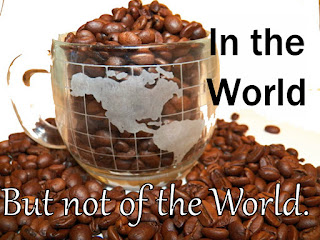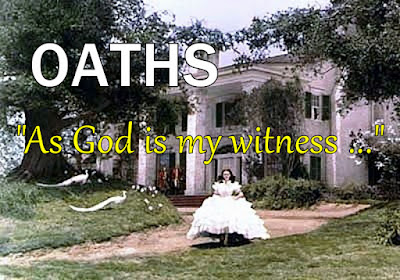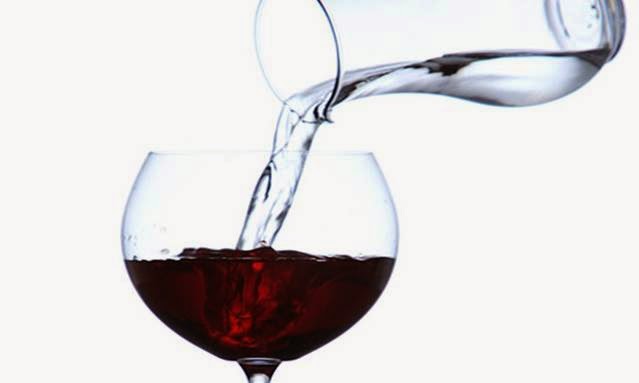REALITY CHECK
And I said: “Woe is me! I am lost, for I am a man of unclean lips, and I live among a people of unclean lips; yet my eyes have seen the King, the Lord of hosts!”
Then one of the seraphs flew to me, holding a live coal that had been taken from the altar with a pair of tongs. The seraph touched my mouth with it and said: “Now that this has touched your lips, your guilt has departed and your sin is blotted out." Isaiah 6:5-7
Isaiah was having what I would call a "bathroom mirror" experience. We all have them. It's that moment under the glare of the bathroom lights that we look in the mirror and realize we're not the person we thought we were. In my mind's eye, I'm still twenty-five and forty pounds lighter, but when I look in the mirror, I see all the signs of aging -- the wrinkles, the bags under my eyes, the sagging skin. It's a reality check reminding me that I'm not the person I thought i was and confronting me with who I really am -- thirty-four years older.
When Isaiah comes face to face with God, he sees himself in the reflection of God's glory and realizes that he's not the man he thought he was. It's reality check time, and Isaiah sees that he is a sinner.
Sin. It's the reality of the world. We live in a creation that is yet to be fully redeemed where diseases like cancer take the lives of the ones we love, where children go hungry, where people are exploited and abused and where hate and greed seem to be SOP.
But we can't make excuses for our own personal sins by blaming it on other things and other people. Isn't that what they did in the Garden? God confronts Adam and Eve about disobeying God and eating of the fruit of the Tree of the Knowledge of Good and Evil, and they play the blame game. Adam points at Eve, "she told me it was okay to eat it," and Eve points at the snake, "the devil made me do it!" Look at how well that turned out.
If we are truly honest with ourselves, if we look into the mirror of God's righteousness, we are sinful people. Created in the image of God and given the freedom to choose what and who we love, more often than not, we choose to love our own self-centered desires more than we love God and our neighbors.
We choose to do harm to ourselves and others, to rebel against the God's law of love and to break relationship with God and other people.
We all do.
It's hard to admit that to ourselves. We tell ourselves, "I'm not that bad .. it was just a little white lie ... everyone else does it." Sometimes, I find myself down playing sin. Instead of naming it for what it is, I call it inappropriate behavior or mistakes or a lack of good judgment. That yellow and purple paisley mini-dress I wore in high school was a lack of good judgment, but it didn't have the consequences that sin does.
In the Tim Burton production of "Alice in Wonderland," Alice returns as a young woman to Wonderland. She denies who she is, "the Alice" and tells herself and everyone she meets that this is all a dream. Doing so, she puts herself and others in danger. It results in her being clawed by a monster called a Bandersnatch. Despite the fact she's told the wound will fester and putrify unless it is purified, she ignores the the advice, and the wound gets uglier and uglier.
That's what happens when we try to deny the existence of our own sin, down play it or try to blame it on someone or something else. It festers and infects our souls and our relationship with God, with other human beings, and even with ourselves. Sin, left untreated, produces guilt, shame, the fear of being found out, and often leads us further and further away from God. Like any untreated wound, sin has the potential of leading to death -- spiritual death in this case.
Sometimes a response to God's extravagant love and grace is a reality check on our part. Isaiah's response was to confess his sinfulness before God. That's not always so easy for us to do. What if God won't forgive us? What if God holds a grudge?
Psalm 103:11-14 tells us:
For as the heavens are high above the earth,
so great is his steadfast love toward those who fear him;
12 as far as the east is from the west,
so far he removes our transgressions from us.
13 As a father has compassion for his children,
so the Lord has compassion for those who fear him.
14 For he knows how we were made;
he remembers that we are dust.
God knows who we are. We are sinful people, and in God's compassion for us, God forgives us and blots our our sin when we are honest and admit to ourselves and before God that we have harmed ourselves and others, damaging our relationship with them and with God.
Through the sacrifice of his own life, Jesus, God in flesh among us, paid the price of our sins with his own blood. It is the power of Christ's blood that cleanses us and makes us whole. It is the redeeming power of Christ that frees us from slavery to sin and death.
Sometimes, an encounter with the extravagant love and grace of God results in a reality check. What we see reflected in God's glory may not be what we want to see, but the forgiveness we have through Jesus Christ has the power to help us become the people God has created us to be.
Isaiah was having what I would call a "bathroom mirror" experience. We all have them. It's that moment under the glare of the bathroom lights that we look in the mirror and realize we're not the person we thought we were. In my mind's eye, I'm still twenty-five and forty pounds lighter, but when I look in the mirror, I see all the signs of aging -- the wrinkles, the bags under my eyes, the sagging skin. It's a reality check reminding me that I'm not the person I thought i was and confronting me with who I really am -- thirty-four years older.
When Isaiah comes face to face with God, he sees himself in the reflection of God's glory and realizes that he's not the man he thought he was. It's reality check time, and Isaiah sees that he is a sinner.
Sin. It's the reality of the world. We live in a creation that is yet to be fully redeemed where diseases like cancer take the lives of the ones we love, where children go hungry, where people are exploited and abused and where hate and greed seem to be SOP.
But we can't make excuses for our own personal sins by blaming it on other things and other people. Isn't that what they did in the Garden? God confronts Adam and Eve about disobeying God and eating of the fruit of the Tree of the Knowledge of Good and Evil, and they play the blame game. Adam points at Eve, "she told me it was okay to eat it," and Eve points at the snake, "the devil made me do it!" Look at how well that turned out.
If we are truly honest with ourselves, if we look into the mirror of God's righteousness, we are sinful people. Created in the image of God and given the freedom to choose what and who we love, more often than not, we choose to love our own self-centered desires more than we love God and our neighbors.
We choose to do harm to ourselves and others, to rebel against the God's law of love and to break relationship with God and other people.
We all do.
It's hard to admit that to ourselves. We tell ourselves, "I'm not that bad .. it was just a little white lie ... everyone else does it." Sometimes, I find myself down playing sin. Instead of naming it for what it is, I call it inappropriate behavior or mistakes or a lack of good judgment. That yellow and purple paisley mini-dress I wore in high school was a lack of good judgment, but it didn't have the consequences that sin does.
In the Tim Burton production of "Alice in Wonderland," Alice returns as a young woman to Wonderland. She denies who she is, "the Alice" and tells herself and everyone she meets that this is all a dream. Doing so, she puts herself and others in danger. It results in her being clawed by a monster called a Bandersnatch. Despite the fact she's told the wound will fester and putrify unless it is purified, she ignores the the advice, and the wound gets uglier and uglier.
That's what happens when we try to deny the existence of our own sin, down play it or try to blame it on someone or something else. It festers and infects our souls and our relationship with God, with other human beings, and even with ourselves. Sin, left untreated, produces guilt, shame, the fear of being found out, and often leads us further and further away from God. Like any untreated wound, sin has the potential of leading to death -- spiritual death in this case.
Sometimes a response to God's extravagant love and grace is a reality check on our part. Isaiah's response was to confess his sinfulness before God. That's not always so easy for us to do. What if God won't forgive us? What if God holds a grudge?
Psalm 103:11-14 tells us:
For as the heavens are high above the earth,
so great is his steadfast love toward those who fear him;
12 as far as the east is from the west,
so far he removes our transgressions from us.
13 As a father has compassion for his children,
so the Lord has compassion for those who fear him.
14 For he knows how we were made;
he remembers that we are dust.
God knows who we are. We are sinful people, and in God's compassion for us, God forgives us and blots our our sin when we are honest and admit to ourselves and before God that we have harmed ourselves and others, damaging our relationship with them and with God.
Through the sacrifice of his own life, Jesus, God in flesh among us, paid the price of our sins with his own blood. It is the power of Christ's blood that cleanses us and makes us whole. It is the redeeming power of Christ that frees us from slavery to sin and death.
Sometimes, an encounter with the extravagant love and grace of God results in a reality check. What we see reflected in God's glory may not be what we want to see, but the forgiveness we have through Jesus Christ has the power to help us become the people God has created us to be.



Comments
Post a Comment